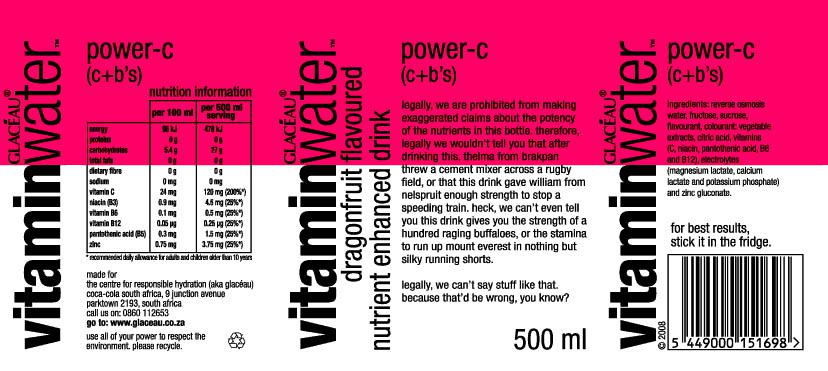http://www.huffingtonpost.com/john-robbins/the-dark-side-of-vitaminw_b_669716.html
'Now here's something you wouldn't expect. Coca-Cola is being sued by a non-profit public interest group, on the grounds that the company's vitaminwater products make unwarranted health claims. No surprise there. But how do you think the company is defending itself?
In a staggering feat of twisted logic, lawyers for Coca-Cola are defending the lawsuit by asserting that "no consumer could reasonably be misled into thinking vitaminwater was a healthy beverage."
Does this mean that you'd have to be an unreasonable person to think that a product named "vitaminwater," a product that has been heavily and aggressively marketed as a healthy beverage, actually had health benefits?
Or does it mean that it's okay for a corporation to lie about its products, as long as they can then turn around and claim that no one actually believes their lies?
In fact, the product is basically sugar-water, to which about a penny's worth of synthetic vitamins have been added. And the amount of sugar is not trivial. A bottle of vitaminwater contains 33 grams of sugar, making it more akin to a soft drink than to a healthy beverage.'
snip
'The truth is that when it comes to weight loss, what you drink may be even more important than what you eat. Americans now get nearly 25 percent of their calories from liquids. In 2009, researchers at the Johns Hopkins Bloomberg School of Public Health published a report in the American Journal of Clinical Nutrition, finding that the quickest and most reliable way to lose weight is to cut down on liquid calorie consumption. And the best way to do that is to reduce or eliminate beverages that contain added sugar.'
snip
'The lawsuit, brought by the Center for Science in the Public Interest, alleges that vitaminwater labels and advertising are filled with "deceptive and unsubstantiated claims." In his recent 55-page ruling, Federal Judge John Gleeson (U.S. District Court for the Eastern District of New York), wrote, "At oral arguments, defendants (Coca-Cola) suggested that no consumer could reasonably be misled into thinking vitamin water was a healthy beverage." Noting that the soft drink giant wasn't claiming the lawsuit was wrong on factual grounds, the judge wrote that, "Accordingly, I must accept the factual allegations in the complaint as true."
I still can't get over the bizarre audacity of Coke's legal case. Forced to defend themselves in court, they are acknowledging that vitaminwater isn't a healthy product. But they are arguing that advertising it as such isn't false advertising, because no could possibly believe such a ridiculous claim.
I guess that's why they spend hundreds of millions of dollars advertising the product, saying it will keep you "healthy as a horse," and will bring about a "healthy state of physical and mental well-being." '
more at link
Release the defenders!